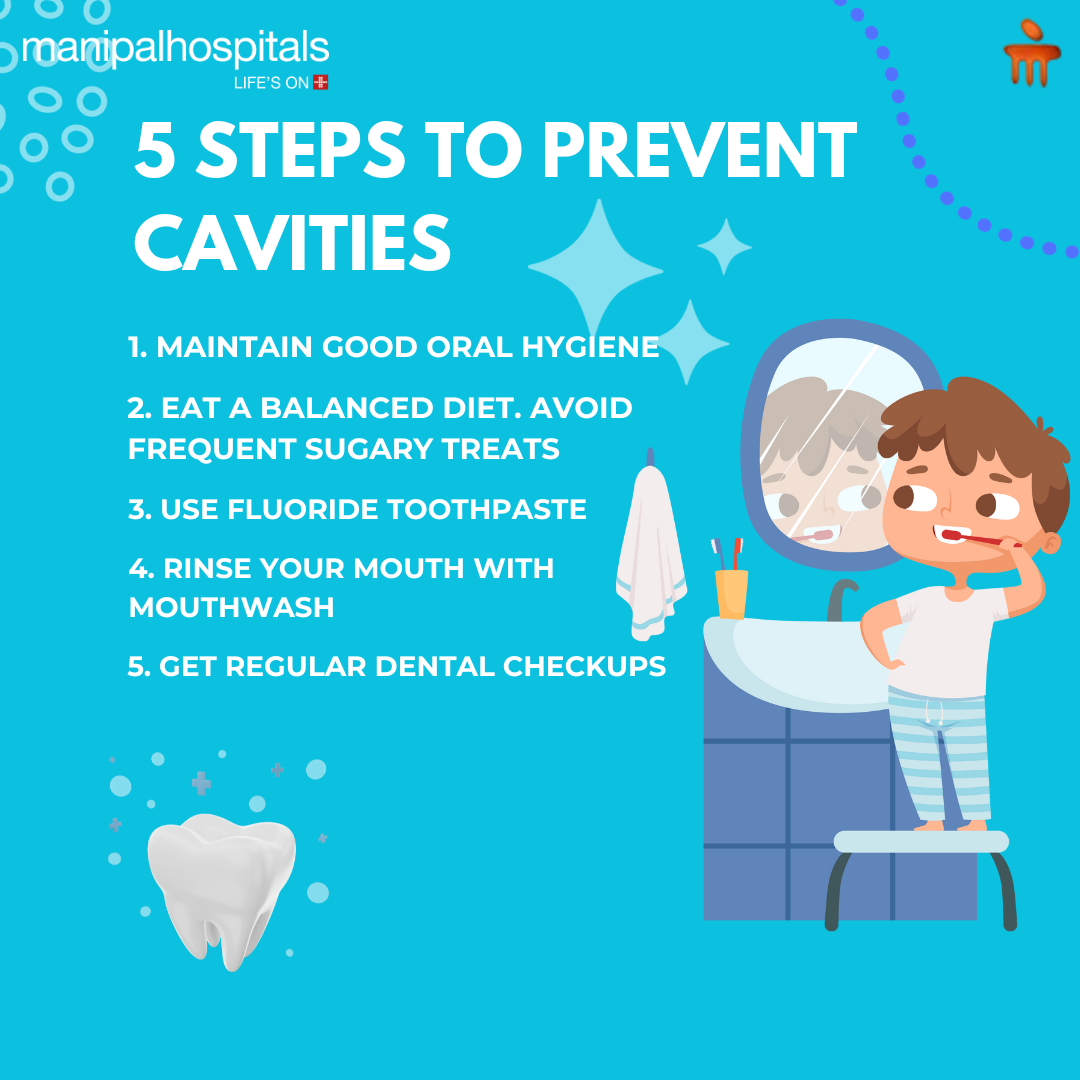
A smile is one of the first things people notice about you, and your teeth play a crucial role in creating a lasting impression. However, maintaining a healthy smile can be a challenge, especially when tooth cavities come into play. Tooth cavities, also known as dental caries or decay, are one of the most common dental problems affecting people of all ages. In this blog, we'll explore what causes tooth cavities, how they form, and most importantly how you can prevent them and the top dental medicine doctors in Bangalore.
Understanding Tooth Cavity Formation
To understand how tooth cavities form, it's essential to know the key players involved:
-
Tooth Structure
Your teeth consist of different layers. The outermost layer is called enamel, which is a hard, protective covering. Beneath the enamel, there's a layer called dentin, and at the centre is the pulp, which contains nerves and blood vessels.
-
Bacteria
Your mouth is home to various types of bacteria, some of which are harmful. When you consume sugary or starchy foods and beverages, these bacteria feed on the sugars and produce acid as a byproduct.
-
Acid
The acid produced by bacteria is the primary culprit behind tooth decay. It weakens and erodes the enamel, creating tiny openings or holes known as cavities.
So, the process is quite simple: bacteria + sugars = acid, which attacks your tooth enamel, leading to cavity formation.
Common Causes of Tooth Cavity Formation
Several factors can contribute to the formation of tooth cavities:
- Poor Oral Hygiene: Inadequate brushing and flossing allow plaque (a sticky film of bacteria) to accumulate on your teeth, increasing the risk of cavities.
- Diet: A diet high in sugary and starchy foods provides ample fuel for cavity-causing bacteria. Frequent snacking and sipping on sugary beverages can be particularly harmful.
- Dry Mouth: Saliva plays a crucial role in neutralising acids and maintaining a healthy oral environment. A dry mouth, often caused by medications or certain medical conditions, can increase the risk of cavities.
- Age: Children and older adults are more susceptible to tooth cavities. Children's developing teeth are more vulnerable, while older adults may experience receding gums, making the dentin more accessible to bacteria.
- Genetics: Some individuals may have a genetic predisposition to cavities due to variations in the composition of their saliva and enamel.
Visiting your dentist every six months will ensure proper maintenance and protection of your teeth from issues like excess deposits and cavities, says Dr. Chandramohan Raju, Dental Surgeon, Manipal Hospitals, Malleshwaram. Watch the video below to learn more!
Preventing Tooth Cavities
Now that we understand the causes of tooth cavities, let's explore how you can prevent them:

- Good Oral Hygiene: Brush your teeth at least twice a day with fluoride toothpaste, and don't forget to floss daily. This helps remove plaque and food particles, reducing the risk of cavities. Also, refer to the blogs on 'Dental Hygiene' to educate yourself more on the subject.
- Balanced Diet: Limit sugary and starchy foods and opt for a balanced diet rich in fruits, vegetables, and dairy products. Avoid frequent snacking on sugary treats.
- Fluoride: Use fluoride toothpaste and consider fluoride treatments as recommended by your dentist. Fluoride strengthens enamel and makes it more resistant to acid attacks.
- Regular Dental Check-ups: Visit your dentist regularly for check-ups and professional cleanings. Early detection and treatment of cavities can prevent them from progressing.
- Dental Sealants: Your dentist may recommend dental sealants, especially for children, to protect the chewing surfaces of molars and premolars from cavities.
Additional Tips for Preventing Tooth Cavities
Here are some additional tips to prevent tooth cavities:
- Acidic foods and drinks can also weaken enamel. Minimise consumption of items like citrus fruits, carbonated sodas, and vinegar-based dressings. If consumed, rinse your mouth with water afterwards.
- Chewing sugar-free gum can stimulate saliva production, which helps neutralise acids and cleanse the mouth.
- Drinking plenty of water not only helps with overall health but also keeps your mouth moist, reducing the risk of cavities.
- Smoking and using tobacco products can contribute to tooth decay and gum disease. Quitting these habits can greatly benefit your oral health.
Tooth cavities can be a common dental woe, but they are preventable. By maintaining good oral hygiene, adopting a balanced diet, and seeking professional dental care when needed, you can protect your teeth and enjoy a beautiful smile for years to come.





















 3 Min Read
3 Min Read











